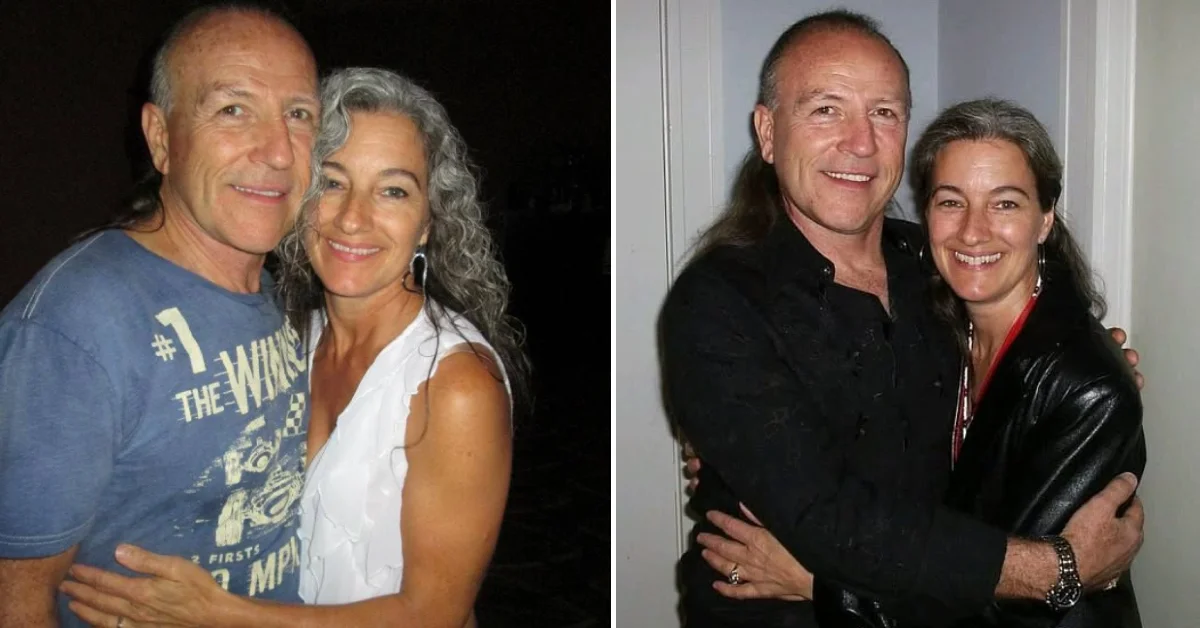Mark Farner, Grand Funk Railroad’s guitar legend, didn’t just stick to music—he became a certified public accountant, too. From rocking stadiums to crunching numbers, Farner proves it’s never too late to start over.
Mark Farner Net Worth
As of 2025, Farner’s net worth is about $16–$20 million. He’s earned this money from music and his accounting practice over more than 50 years.
The bulk of Farner’s fortune stems from his musical career, particularly his time with Grand Funk Railroad. Farner wrote almost all of their hits—about 90%—so he still earns royalties from songs like “Some Kind of Wonderful. Songs like “I’m Your Captain/Closer to Home,” “Some Kind of Wonderful,” and “Bad Time” still earn royalties through radio play, streaming, and commercial licensing.
Farner’s solo albums and tours with “Mark Farner’s American Band” keep him busy on the road and help sell merch.
In the ’90s, Farner hit the books again, earned his CPA license, and launched his own firm. Today, it pulls in $1–$5 million a year, showing he’s more than just a rocker.
His assets include real estate holdings, investment portfolios, and ongoing music royalties. While exact figures aren’t public, financial experts note that Farner’s dual career path created a more stable financial foundation than many of his rock contemporaries enjoy.
The Multifaceted Career
1. Rock Band Days
Mark Farner co-founded Grand Funk Railroad in 1969 in Flint, Michigan, alongside Don Brewer and Mel Schacher. The band quickly rose to prominence as one of America’s most successful rock acts of the 1970s.
As lead guitarist, lead vocalist, and primary songwriter, Farner was instrumental in crafting the band’s signature sound. Grand Funk Railroad sold more than 25 million records worldwide during their peak years. Their 1973 album “We’re an American Band” topped the charts, with the title track becoming one of rock’s most recognizable anthems.
The band’s success wasn’t just artistic—it was financial. At their height, Grand Funk Railroad broke The Beatles’ previous record for fastest-selling tickets when they sold out New York’s Shea Stadium in just 72 hours. These massive shows translated to substantial earnings for band members, especially Farner as the key creative force.
What many fans don’t realize is how Farner’s business acumen showed even during his rock years. He made sure the band maintained ownership of master recordings wherever possible, a decision that would pay dividends decades later as digital streaming revitalized interest in classic rock.
2. Solo Success
After Grand Funk Railroad’s initial breakup in 1976, Farner launched his solo career with his first album, “Mark Farner.” Though it didn’t match the commercial heights of Grand Funk Railroad, his solo work allowed him to explore different musical directions and maintain artistic control.
Throughout the 1980s and 1990s, Farner released several solo projects and collaborated with other musicians. He joined Ringo Starr’s All-Starr Band for a time, keeping his name relevant in music circles and providing additional income streams.
His solo touring has proven particularly lucrative. By focusing on smaller venues with dedicated fans, Farner created a sustainable touring model that doesn’t require the massive overhead of arena shows. This approach has allowed him to maintain profitability even as the music industry underwent dramatic changes.
3. From Rock Star to CPA
Perhaps the most unusual aspect of Farner’s financial story is his mid-life career shift. While most aging rock stars either fade away or continue touring on their past hits, Farner took a completely different path.
In the early 1990s, as he approached his late 40s, Farner began studying accounting. Friends were surprised when the rock guitarist announced he was pursuing CPA certification, but Farner explained he wanted financial security that didn’t depend solely on the music industry’s ups and downs.
After obtaining his CPA license, he opened his practice. The firm specialized in both individual tax preparation and business accounting, with a particular focus on entertainment industry clients. Farner’s understanding of royalty structures and music business contracts gave him unique insight that attracted clients from his former world.
By 2025, his accounting firm had grown to include several other CPAs and staff members. The business reportedly generates between $1-5 million in annual revenue. Unlike the boom-and-bust cycle of music earnings, his CPA practice provides steady, predictable income—something Farner has cited as giving him peace of mind in his later years.
This dual-career approach—balancing music with a second career—showcases Farner’s financial wisdom. The stability of his accounting practice allowed him to be more selective about music projects, taking only those that truly interested him rather than those he needed for income.
Personal Life

Mark Farner’s journey includes challenges that would have derailed many others. His resilience in facing these obstacles has shaped not just his character but also his financial decisions.
Farner experienced two near-death health scares that changed his outlook on life and money. The first came in the early 2000s when he suffered a heart attack that required emergency surgery. After recovering, Farner became more focused on financial planning and security, understanding firsthand how quickly life circumstances can change.
A second health crisis in 2012 involved emergency surgery for a pacemaker implantation. This experience deepened his commitment to maintaining financial stability, as medical expenses can quickly deplete savings without proper planning—something he now advises clients about in his CPA practice.
His personal life hasn’t been without controversy. Farner’s relationship with his former Grand Funk Railroad bandmates soured over the years, leading to public disputes about the band’s name and legacy. These disagreements culminated in legal battles that, while emotionally draining, taught Farner valuable lessons about intellectual property rights that he now applies in both his music career and his accounting advice.
In 2024, Farner spoke up about patching things up with his old bandmates. He also said that feeling calm matters more than chasing every dollar, so now he picks projects that make him happy.
His family life also plays a role in his financial story. Married for over four decades to his wife Lesia, Farner has made family-focused financial decisions. Rather than chasing maximum wealth, he structured his dual careers to allow for work-life balance—something he credits for his long-term success in both fields.
7 Myths About Mark Farner’s Net Worth—Busted!
1. Myth: He’s worth $25 million
Truth: Estimates vary from $10 million to $25 million—no public audit confirms a single number.
2. Myth: His CPA Firm’s Value Is Public
Truth: His private accounting practice doesn’t file public reports. Industry averages lead to guesswork.
3. Myth: Music Royalties Are Simple
Truth: Songwriting, performance, and publishing all pay different rates, and Farner’s bigger cut as the main writer remains private.
4. Myth: The 2023 Lawsuit Had No Impact
Truth: The trademark fight over Grand Funk Railroad’s name and logo likely shifted his touring income—settlement details are sealed.
5. Myth: All Sites Agree on His Worth
Truth: Reputable sources like TheRichest and music-industry trackers land him closer to $16–$20 M.
6. Myth: He Got Rich Overnight on Rock Star Pay
Truth: Farner’s steady path—building a CPA career alongside Grand Funk Railroad—kept him solvent when rock fortunes faded.
7. Myth: Musicians Must Rely Only on Music
Truth: His dual-career plan shows artists can secure lasting wealth with smart side businesses, especially in a streaming-driven industry.
Conclusion
At this stage in his life, Mark Farner’s financial focus has shifted from wealth building to legacy planning and wealth preservation. Now in his 70s, he’s making decisions aimed at protecting his assets for his family and charitable interests.
His accounting practice appears positioned for continuation even beyond his active involvement. By building a team of professionals who share his values and approach, Farner created a business that doesn’t depend solely on his personal expertise or name recognition.
On the music side, he’s taken steps to ensure his catalog remains commercially relevant. Remastered releases, strategic licensing for commercials and movies, and carefully chosen collaborations keep his music in the public ear, maintaining royalty streams for years to come.
Farner’s story represents a fascinating case study in how artists can create financial security through diversification and professional reinvention. His journey from rock guitarist to respected CPA demonstrates that career transitions, while challenging, can lead to greater stability and satisfaction when approached with determination and planning.
Unlike many stories of rock star finances that end in cautionary tales of excess and loss, Farner’s narrative showcases the power of adaptation and lifelong learning. His $16-20 million net worth in 2025 reflects not just his musical talents but his business acumen and willingness to build new skills mid-career.
For fans of his music and admirers of his business sense alike, Mark Farner’s financial journey offers inspiration about creating lasting success through multiple chapters of life. His story proves that with the right mindset, even rock stars can find new stages for their talents beyond the concert arena.
